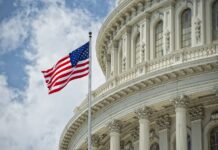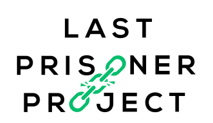WASHINGTON – Although 24 states and D.C. have legalized adult-use cannabis sales and the vast majority of the U.S. population now lives in states with some form of legal cannabis, tens of thousands of people remain in state and federal prison. It is imperative that as the federal government seeks to downgrade cannabis’s status from a Schedule I drug, advocates are pushing for the full legalization of cannabis, complete with effective strategies for retroactive relief.
On April 18th, 2024, Last Prisoner Project (LPP) will be mobilizing the largest bi-partisan coalition of cannabis advocacy, industry, and grassroots organizations in the U.S. to convene in Washington D.C. for a 420 Unity Day of Action to put public pressure on Congress and the President to take action on the full descheduling of cannabis and the necessary retroactive relief measures.
The broad array of advocate groups spans across political boundaries and includes members of the Marijuana Justice Coalition like DPA, SSDP, NORML, Veterans Cannabis Coalition, Parabola Center; members of the Cannabis Freedom Alliance, Reason Foundation, and Law Enforcement Action Partnership; and industry groups like National Cannabis Festival, National Craft Cannabis Coalition, National Cannabis Industry Association (NCIA), Minority Cannabis Business Association (MCBA), Indigenous Cannabis Industry Association, Asian Cannabis Roundtable, and National Association of Black Cannabis Lawyers.
As more organizations join our fight, individuals interested in attending the action can sign up here.
In addition to mobilizing this day of action, Last Prisoner Project released a memo outlining how cannabis justice advocates can leverage the impending historic change in schedule for cannabis to push the fight for cannabis justice forward by broadening the scope of Biden’s cannabis clemency action, working with Congress and certain administrative agencies to both provide retroactive relief and to reduce prospective cannabis criminal enforcement, and incentivizing states to provide broad retroactive relief, particularly in states that have adopted a fully legal cannabis market.
“We need an all hands on deck approach to ending the unjust war on our community, which means leveraging incremental wins as we build toward bigger, bolder reform,” said Sarah Gersten, LPP Executive Director and author of the memo. “While rescheduling alone will not offer retroactive relief, it would be a historic shift in policy, and we must be ready to push open the door of reform when it happens. We have outlined several ways the administration can achieve real relief and add substance to the President’s mostly symbolic reforms so far.”
“We are thrilled to participate in this day of action to underscore the urgency of marijuana justice. We call on Congress to pass comprehensive marijuana reform legislation that deschedules marijuana and provides an equitable framework for marijuana regulation. At this critical juncture for federal marijuana reform, our communities will not be sidelined,” said Maritza Perez Medina, Director of Federal Affairs for the Drug Policy Alliance, the leading member of the Marijuana Justice Coalition. “In addition, we implore President Biden to use his executive authority to bring people home from prison immediately and end some of the most egregious harms of marijuana criminalization.”
“Rescheduling marijuana might sound like a good idea, but it’s fraught with danger,” said Geoffrey Lawrence, Research Director at Reason Foundation and Policy Director for the Cannabis Freedom Alliance. “A Schedule III designation would continue to criminalize the manufacture, distribution, or possession of marijuana at the federal level for any products that haven’t received pre-market approval from the FDA. Substantively, that means the change would imply no relief from criminal law for existing consumers or licensees, while any new exercise of regulatory authority by the FDA could imperil existing state-regulated markets. All the progress advocates have made over past decades could be erased. Full descheduling is the only approach that should be considered for marijuana.”
“There is no way to ensure universal veteran and patient access to cannabis in the US without federal descheduling. Cannabis on the Controlled Substances Act is, by far, the single largest barrier to normalizing the plant as a medicine and harm reduction alternative and ending the routine violation of individual liberty created by criminalization,” said Eric Goepel, Founder & CEO of Veterans Cannabis Coalition. “The hundreds of thousands of veterans dead by suicide and overdose in the last 20 years–and the massive role that unmanaged mental and physical health issues played–are a stark testimony to the failure of the current system to care for those in need.”
“NCIA supports ending the criminalization of our industry by removing cannabis (including THC) from the federal Controlled Substances Act altogether so that our businesses are treated like all other lawful American businesses,” said Michelle Rutter Friberg — Director of Government Relations for NCIA. “However, we also support moving cannabis from Schedule I to III as a first step in the right direction, because the federal government would publicly acknowledge the medical value of cannabis and remove the punitive tax burden imposed by Internal Revenue Code 280E on state-legal cannabis businesses.”
“MCBA is proud to support this day of action because it’s clear that Congress needs to be reminded during this critical election year that ending prohibition has the broad support of the American public,” said Kaliko Castille, MCBA President. ”Congress is the only governing body that can truly end this national nightmare of locking humans in cages simply for possessing or growing a plant. Our communities can’t afford to wait any longer.”
“It is not enough to simply treat the symptoms of bad cannabis policy; we must fix the problem at its root cause,” said Kat Murti, Executive Director of SSDP. “Young people have always been on the frontlines of the movement to end the War on Drugs. The War on Drugs is a War on Us, and SSDP is dedicated to ensuring that our generation is the one to finally bring it to an end.”
Indigenous Cannabis Industry Association Founder Rob Pero, said, “Accessibility of plant medicine is critical for our communities, especially our Indigenous communities nationwide who are disproportionately affected by opioid abuse and need a safe alternative. Equitable and responsible policy reform is needed to increase access to cannabis and create opportunities for healing, rather than perpetuating harm.”
“We’re in a new era in the fight to change our drug laws, and it starts with freeing the people who are locked up for cannabis,” said Shaleen Title, Founder of the Parabola Law and Policy Center. “For us, this day of action is a demonstration that we will continue together to pay attention to the details, change laws, and hold those in power accountable — and won’t cede our hard-earned power to corporations and lobbyists.”
“As craft cannabis producers, we know that only the full federal legalization of cannabis will provide a level playing field for small and local businesses,” said Ross Gordon with the National Craft Cannabis Coalition. “Moving past prohibition-era stigma means treating small cannabis farmers as farmers just like any other form of American agriculture, and comprehensively recognizing and addressing the discrimination and prejudice underlying the ongoing failed War on Drugs.”
“It is well past time that cannabis was removed from the Controlled Substances Act scheduling entirely and treated more like other substances that most Americans can utilize responsibly without fear of legal penalties, discrimination, or loss of civil liberties.” said Morgan Fox, NORML Political Director. “While moving cannabis out of Schedule 1 is symbolically important, anything short of descheduling merely perpetuates the conflict between state and federal laws, continues to punish individual consumers and patients, and does nothing to facilitate the study or regulation of cannabis in a fashion that reflects the will of the supermajority of Americans who want to end federal prohibition.”
“Neither rescheduling nor descheduling alone would address the prior decades of unjust arrests, convictions, and criminal sentences for cannabis-related offenses. Retroactive relief is a critical detail as simply ending future arrests does not bring justice to the millions of individuals harmed by decades of past prohibition,” said Stephanie Shephard, Board Chairwoman of the Last Prisoner Project. “We need full legalization with comprehensive retroactive relief and nothing less than the end to anyone being incarcerated for cannabis crimes.”
ABOUT LAST PRISONER PROJECT
Last Prisoner Project is dedicated to freeing those incarcerated due to the War on Drugs, reuniting their families, and helping them rebuild their lives. As laws change, there remains a fundamental injustice for individuals whose conviction is no longer a crime. We work to repair these harms through legal intervention, constituent support, direct advocacy, and policy change.
Visit www.lastprisonerproject.org or text FREEDOM to 24365 to learn more.








